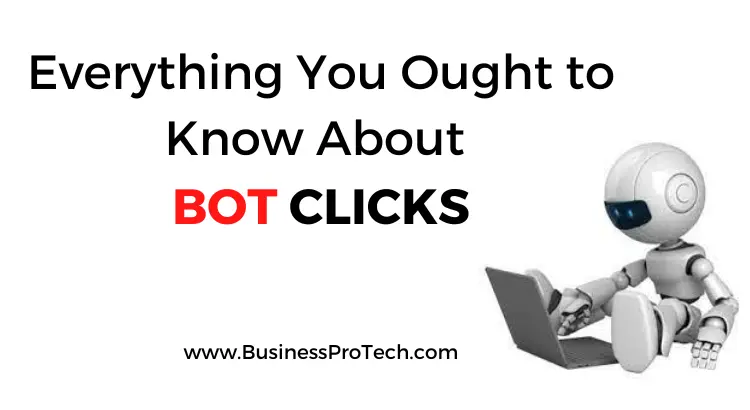Ever wonder why companies want you to check a box that confirms you are not a robot? Or why do they have you solve puzzles to prove you are human? The rise of the online bot is no small matter.
Recent years have seen a complete transformation from TV, radio, and newspaper advertising to digital marketing. As soon as the internet established itself, Google was on its way to making money from ad clicks.
The first websites went live in 1995 and by the year 2000, Google had already released AdWords. Digital advertising exploded just as quickly as we realised we could beam ads into people’s homes without the cost of TV advertising.
It is the ease of advertising that has put us in danger from a new threat: AI clicks. These so-called bots will trawl your pages and steal your business’s ad spend.
Here is everything you ought to know about bot clicks.

What is a ‘Bot’?
We obviously are not talking about a real robot that sits on the internet all day and clicks buttons, but we are not that far away from it. In fact, the only reason we do not have that yet is that we can run software programs to do it for us, without the need for a physical robot.
Why build the bot if you can just run a program, instead?
So, a bot is not a physical being, it is a computer algorithm. The point of most algorithms is to perform an automated task that saves the user time and money. The Google bot, for example, crawls pages to index them so they become searchable.
Anti-bot company Lunio warns that not all bots are performing good tasks. Some are monitoring conversations, gathering data on users’ bank details, or clicking on your digital marketing agency’s PPC ads and wasting your time and money.
Where Do The Bots Come From?
Security firms suggest that most bots operate out of North America. Contrary to widespread belief, most bots are not inherently bad. In fact, we use them for things like searching the web for the best price using a shopbot or creating a chatbot for your website to help generate leads.
More nefarious are the Knowbots, who collect data from all over the internet regarding a predetermined topic. Social bots are also a grey area since they can influence discussions on social media sites.
The Earliest Bot
If we look back through time, the earliest bots emerged all the way back in 1988. Ten years before the first social sites went live, internet architects were developing chatbots to test the limits of AI.
The oldest bots were Internet Relay Chat Bots. These bots occupied server space so that the server did not shut down due to inactivity. Now we have algorithms and programming for that.
Notably, the Google Bot was the original “Backrub.” Internet scientists created it all the way back in 1996. Backrub came after the 1994 web crawler used by AOL the following year.
This was the first-ever web crawler. The brand ‘Excite’ took over the AOL web crawler in 1997. Excite was the second-largest internet website back in 1997. In 1999 @Home Network bought Excite.
Are All Internet Bots Bad?
No, not at all. Some of them are performing essential tasks that help the internet run. The best example of this is indexing bots. They are the cataloguers of the internet. They look through all the new websites and new pages added to existing websites, every day.
When you consider that there are 1.88 billion websites live in 2022, that’s a lot of crawling. Fortunately, many sites are defunct. Estimates are that only two hundred million of those sites still see use.
These efficient bots are the reason our sites show up on search engine results pages. If the bot has not reached your page yet, you might not earn a place with Google.
The Dangers of Internet Bots
So, what is it that makes some bots so dangerous? It depends on who you are. If you are a standard internet user and a hacker uses a crawler bot to gather all the information there is about you on the internet, you could face identity theft.
If you are a business owner, on the other hand, and you have a knowbot watching your site, it could be feeding your updates to competitors. If you are running adverts for a product, a bot could click on those ads and cost you money each time.
The next time you run an ad, keep an eye on your click-through rate. If your clicks are high but your engagement is low, you could have a bot in the works.
Why Do Bots Click Ads?
Why would someone program a bot to click on your ads? There is a specific type of bot named a click bot. These bots exist with only one purpose and that is to click on your ads. Who creates them?
Problematic advertising companies who want to push up their clients’ ad clicks so that they can charge more. Internet watchdogs call this click fraud. Who else might do this?
Your competitors could launch bots with the intention of pushing your advertising spend through the roof. Worse, too many clicks and your ads could cancel altogether.
Final Thoughts!
Overall, a click bot is a sad news for your ad campaigns. Hiring a specialist service to get rid yourself of them could be the only answer in a competitive market.

